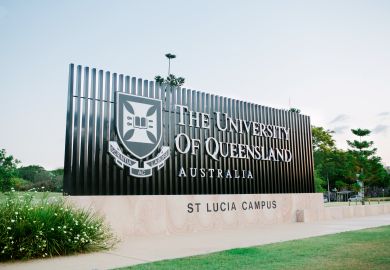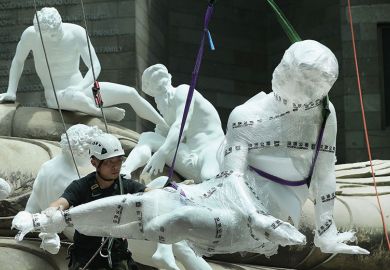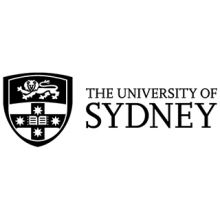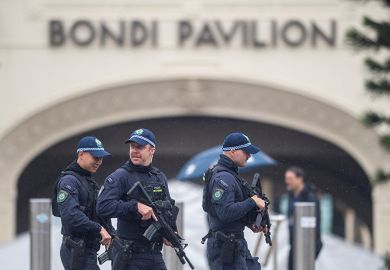After enduring months of internal conflict over a proposal for a lavishly-funded new degree in Western civilisation, an Australian university has lodged a counter-proposal with the idea’s philanthropic backers.
The University of Sydney has suggested that instead of bankrolling an entirely new academic programme, money from the Ramsay Centre for Western Civilisation should be poured into scholarships so that more students can take existing courses.
In an email to staff, Sydney vice-chancellor Michael Spence said he had proposed the revisions in a 17 September letter to the Ramsay Centre. He said that during consultations over the proposal, staff had pointed out that the university already taught scores of subjects in Western civilisation.
“Rather than focussing the funding on a small, select group of students, we think there is an opportunity to open up access to our teaching in these areas to hundreds more,” Dr Spence told staff. “We are proposing that the majority of funding be used for students in the form of scholarships, bursaries, study abroad opportunities and other related support costs.”
Under the original proposal, Ramsay would spend tens of millions of dollars to fund “great books” style small group courses in Western history, philosophy, religion, arts and culture. The money would be used to pay staff salaries as well as generous scholarships for the few dozen students accepted each year.
Staff have run a concerted campaign against the proposal, claiming it is colonial, elitist and a threat to academic autonomy. The Australian National University ended negotiations with Ramsay last year, citing concerns over its academic independence, but the universities of Wollongong and Queensland have since agreed terms with Ramsay.
Dr Spence’s proposal includes embellishing Sydney’s bachelor of advanced studies, which was introduced last year, with a new major in the Western tradition. He said it would involve two introductory core units “which would be ‘great books’ in methodological approach”.
Students would also select five electives in areas such as arts, social sciences, science, architecture, design, planning and music. An indicative list of about 130 possible subjects includes “law, disorder and ideology in Rome”, “art in the age of Giotto”, “imagining Camelot”, “Australian Architecture” and “modernity in crisis”.
Students would also undertake project-based units involving industry, community or guided research in groups. “These changes will allow us to support hundreds of students each year,” Dr Spence told staff. “Over the life of the funding agreement we believe that around 1100 students could benefit.”
A Sydney spokeswoman said details of funding and class sizes were “still to be worked out”. She said classes for Sydney’s current Western civilisation subjects varied from small groups to traditional lecture and tutorial arrangements.
The Ramsay Centre said it had received Sydney’s proposal “and will give it due consideration”.
Ramsay critic Nick Riemer, a senior linguistics lecturer in Sydney’s English department, said he remained opposed to a partnership with the centre. “Regardless of the number of students it funds or the details of a ‘Western tradition’ programme, Ramsay ideologically is still a political project of the hard right.
“Its project is still to rehabilitate and indeed strengthen reactionary ideas in academia and society. It’s completely unacceptable that the university is approaching it for its money and proposing to lend academic credibility to the project.”
Register to continue
Why register?
- Registration is free and only takes a moment
- Once registered, you can read 3 articles a month
- Sign up for our newsletter
Subscribe
Or subscribe for unlimited access to:
- Unlimited access to news, views, insights & reviews
- Digital editions
- Digital access to THE’s university and college rankings analysis
Already registered or a current subscriber?













